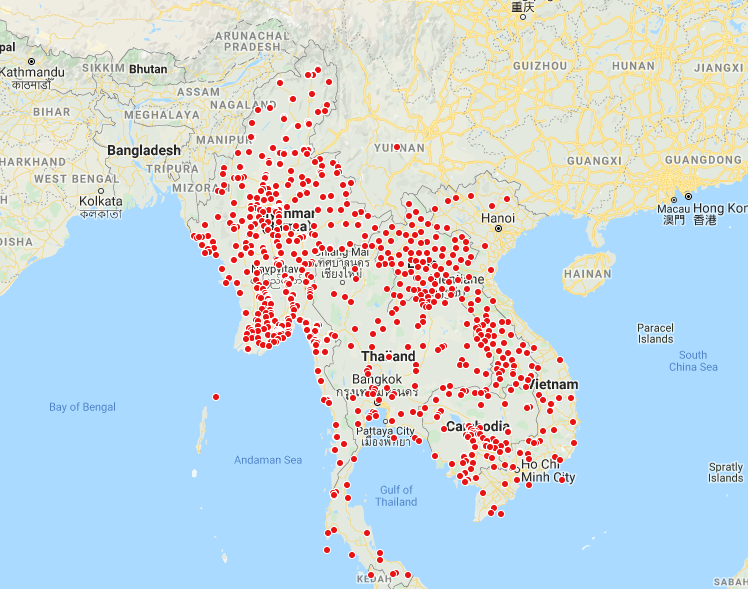The story of malaria in the Mekong region today is one of optimism and urgency. Optimism because the five countries in the region, Cambodia, Laos, Myanmar, Thailand, and Vietnam are in the fight together and are aiming to eliminate the most dangerous strain of malaria by 2025. And, the fight is urgent, because the parasite that causes malaria is evolving and becoming drug resistant.
UNOPS is the regional principal recipient in collaboration with Global Fund partners whom responded to this emerging threat by creating the Regional Artemisinin-resistance Initiative (RAI) with $115 million in grant funding for the period of 2014-2017. Their aim is to eliminate malaria in this geographical region. RAI’s regional steering committee breaks down the barriers between funders, researchers, and communities at risk for malaria. Together they identify gaps, challenges, and fruitful programs. For example, they identified health centers as an effective place for funding investments. Functioning health centers with well-trained staff sow benefits beyond malaria prevention. They also support a network of volunteers that reach people where they live and work, thus promoting prevention activities such as sleeping under mosquito nets, and providing testing and treatments, without the need for a brick and mortar clinic.
RAI Grant Map
As a result of their success, they expanded with a second phase, the RAI2-Elimination (RAI2E) program, with $243 million in grant funding for the period of 2018-2020. The RAI2E continues support for malaria service coverage for remote populations in border areas and other at-risk populations, as well as case management through health volunteers and strengthening of national surveillance systems.
As of June 2019 they have tested 23.3 million people for malaria, distributed over 19.5 million long-lasting insecticidal nets, trained over 33,000 volunteers, and treated over 660,00 people for malaria. The numbers of cases have fallen by over 70% since 2012 and deaths have fallen over 90%.
The RAI2E also has a new private sector advisory network: The Regional Steering Committee (RSC). The RSC collaborates with the Principal Recipient, national country coordinating mechanisms (CCMs), Global Fund, local funding agenda and technical partners to provide strategic direction and oversight to the RAI grant. The RSC also works closely with the World Health Organization through the support of the Emergency Response to Artemisinin Resistance Hub (ERAR), based in Phnom Penh, Cambodia.
Some of the main responsibilities of the RSC are to ensure that grant implementation is focused, fast and flexible based off of access to high quality data enabled by real partnerships. They also aim to create political leverage and joint funding platforms through linking with regional Asia Pacific organizations while complementing the role of national CCMs. Members range from leaders in health ministries, departments of health, and other private sector organizations such as banks, foundations, departments of foreign affairs, and health product suppliers.
Overall, though RAI’s focus is regional, its impact is global as it stops the spread of drug-resistant malaria through multisectoral collaborative support.

